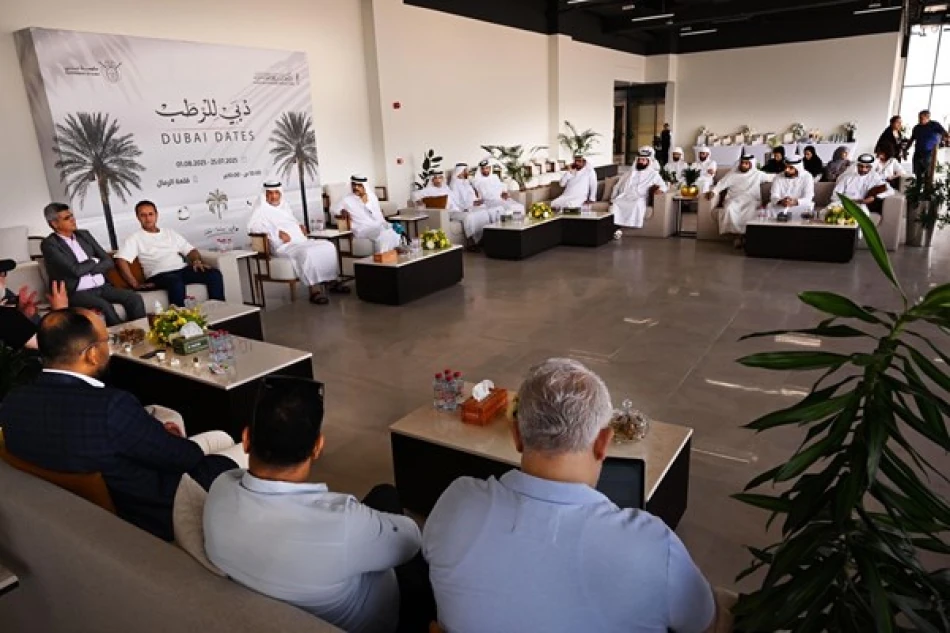
Unveil the 'Home Date Palm Cup' at Dubai's Dates Festival - A Captivating Celebration of Local Produce
Dubai Launches "Home Date Cup" to Revive Palm Tree Heritage in Urban Households
Dubai's heritage preservation efforts are taking root in residential spaces with the launch of the "Home Date Cup," a new competition designed to encourage families to cultivate palm trees within their homes. The initiative, part of Dubai's Dates Festival 2026, represents a strategic shift toward embedding traditional symbols into modern urban living while strengthening cultural identity across generations.
Heritage Meets Modern Living
The Hamdan bin Mohammed Heritage Revival Center announced the competition during a press conference, with CEO Abdullah Hamdan bin Dalmouk explaining that the initiative targets household palm tree cultivation specifically. Unlike traditional agricultural competitions, this program focuses on integrating palm trees as living heritage elements within residential environments.
The timing reflects Dubai's broader cultural strategy of maintaining traditional identity amid rapid modernization. As urban development accelerates across the UAE, initiatives like this serve as cultural anchors, ensuring that symbolic elements of Emirati heritage remain visible and relevant in daily life.
Premium Varieties and Market Integration
The festival will feature a seven-day auction of premium palm tree varieties, organized in partnership with Emirates Auctions. This commercial component introduces a new category dedicated to "Helwet Dubai" palms, described as among the rarest and highest-quality varieties available.
The auction structure suggests recognition of growing demand for heritage plants among collectors and enthusiasts. Similar trends have emerged in other Gulf states, where traditional agricultural varieties command premium prices as cultural symbols gain renewed appreciation.
Beyond Commercial Value
Center officials emphasized that the Dubai Dates Festival prioritizes social and cultural impact over commercial gains. This positioning aligns with broader UAE heritage strategies that treat cultural preservation as a public good rather than purely economic activity.
The approach mirrors successful cultural preservation models in Singapore and other city-states, where traditional elements are consciously integrated into urban planning and community engagement programs.
Institutional Partnerships and Media Strategy
The initiative relies heavily on institutional partnerships, reflecting Dubai's collaborative approach to heritage preservation. The center highlighted media partnerships as particularly crucial, positioning journalists and broadcasters as bridges between traditional culture and contemporary society.
This media-centric strategy acknowledges that cultural symbols require active promotion to remain relevant. The palm tree, while historically significant, needs contemporary presentation to resonate with younger generations who may lack direct agricultural experience.
Cultural Identity in Urban Context
The "Home Date Cup" addresses a specific challenge facing rapidly urbanizing societies: maintaining cultural continuity when traditional lifestyles become impractical. By adapting palm cultivation to residential settings, the program makes heritage participation accessible to urban families.
The initiative's emphasis on connecting individuals with their environment and heritage reflects growing recognition that cultural identity requires active cultivation, particularly in cosmopolitan cities like Dubai where expatriate populations may outnumber locals.
As the UAE continues positioning itself as a cultural hub while preserving national identity, programs like this demonstrate how traditional symbols can be reimagined for contemporary relevance without losing their essential meaning.
Most Viewed News

 Layla Al Mansoori
Layla Al Mansoori






